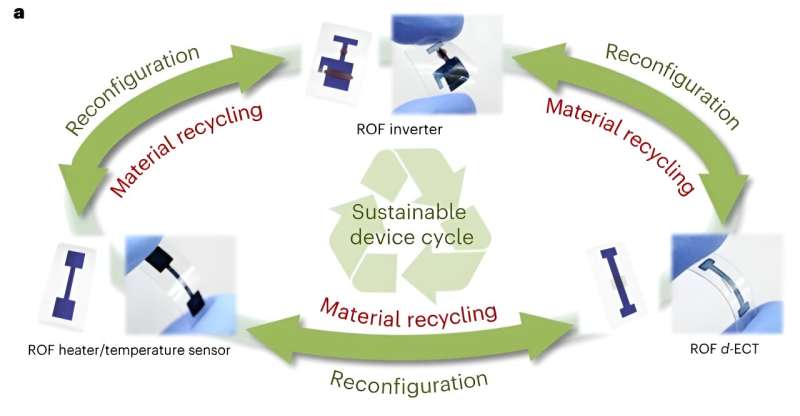The research paves the way for more sustainable practices in the electronics industry, with a focus on reducing waste and minimising environmental impact.
Researchers at Ulsan National Institute of Science and Technology (UNIST),Korea have created organic flexible electronic devices that incorporate closed-loop recycling for each component. They have developed methodologies to recapture and reuse vital components of these devices, including organic conductors, semiconductors, and gate dielectrics.
The advancement of flexible organic electronics, particularly for wearable devices, has been a significant area of research in recent years. However, the synthesis of organic electronic materials often involves the use of hazardous solvents, generates toxic by-products, and incurs various environmental and economic costs.
The introduction of closed-loop recycling in the production of organic flexible electronic (ROF) devices addresses these concerns making this a groundbreaking achievement in the realm of sustainable technology. The approach employs eco-friendly solvents, such as water, anisole, and acetone, not only in the fabrication process but also in the recycling phase.

The researchers have established a sustainable device cycle. This cycle involves reconstructing various types of organic flexible electronics using recycled materials sourced from different functional devices, without the need for additional raw material input. This process eliminates the need for new resources, emphasising the reuse and adaptability of existing materials.
The reliability of these recycled materials has been thoroughly evaluated to ensure their continued efficacy in new applications. The organic conductors were found to be recyclable more than five times, organic insulating gels could be reused more than 30 times, and organic semiconductors exhibited a recycling potential of around one cycle.
The devices include electrophysiological sensing electrodes, keypads, dual-function heaters/temperature sensors, electrochemical transistors, and inverters. They are the practical application of this approach and showcase the potential of recycled materials in creating functional and efficient electronic components.






